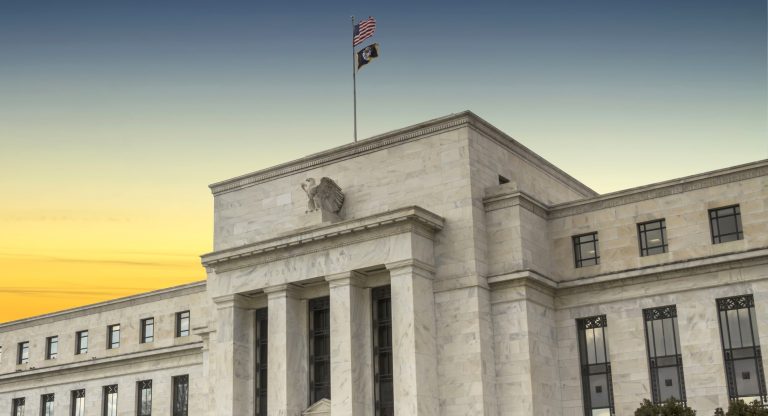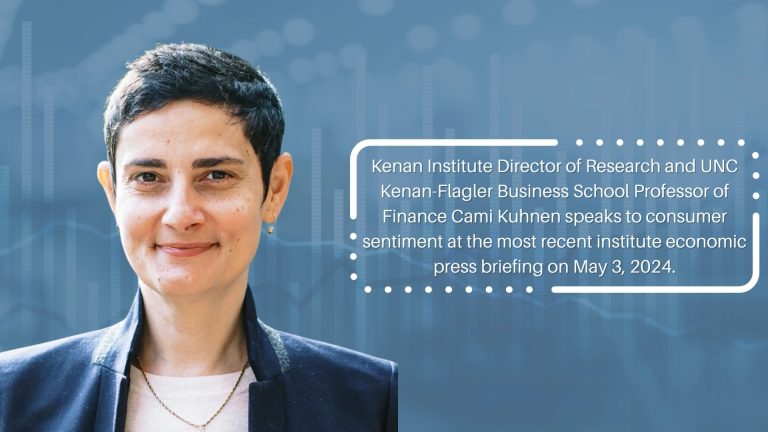
Minding the Inflation Gap: July Press Briefing
The Federal Reserve is seeing slowing inflation numbers, but the public is skeptical. Join Kenan Institute Chief Economist Gerald Cohen for the institute’s monthly virtual briefing at 9 a.m. EDT this Friday, July 12.

The Kenan Institute and Fifth Third Bank will present insights from our new collaboration, “Empowering American Cities,” at a breakfast Tuesday, June 25, in Charlotte.

Exposure to Race Issues: Firm Responses and Market Reactions After George Floyd’s Murder
What can the corporate response to George Floyd’s murder teach us about today’s diversity challenges? Discover how meaningful actions on racial equity affected market valuations, through research from UNC Kenan-Flagler's Daniela De la Parra.

More Signs of Softening: June Press Briefing
Join Kenan Institute Research Director Camelia Kuhnen for the institute’s monthly virtual briefing at 9 a.m. EDT this Friday, June 7, as she dives into new data that shows a softening economy, raising questions about the Fed's response and labor market impact.
Camelia Kuhnen, Kenan Institute director of research and UNC Kenan-Flagler Business School finance professor, speaks to consumer sentiment during the institute's May 3 economic briefing.

Resilience in the Age of Short-Termism
Attributing greater value to missing earnings estimates than to beating them signals a trend toward short-term demands and rewards. But what if a firm wishes to make costly investments that could yield long-term business resilience?
PERC returns to Oxford University’s Saïd Business School on May 16-17, 2024 for the Private Equity Research Consortium Oxford Research Symposium.

Time for a Confidence Check: May Press Briefing
Do employment and wage growth numbers line up with consumer confidence? It's time for a confidence check with Kenan Institute Research Director Camelia Kuhnen during this month's virtual economic briefing at 9 a.m. EDT this Friday, May 3.

As governments try to keep up with broadening economies and address new areas, such as climate change, data protection and artificial intelligence, the regulatory pace is increasing globally. This expansion creates new costs and requires increased business resiliency.

Enhancing the Resilience of Venture Capital
The growth of the venture capital market should not blind one to its limitations as an engine of innovation. Kenan Institute Distinguished Fellow Josh Lerner lays out three areas of concern worthy of more research.
Fifth Third Bank and the Kenan Institute of Private Enterprise at UNC Kenan-Flagler Business School have launched Empowering American Cities, a program that delivers local economic information tailored for business leaders looking to grow their operations.

Potential Trouble: April Economic Briefing
How can the economy be running above its potential output level and still experience declining inflation? Join Kenan Institute Research Fellow Greg Brown in the institute’s monthly virtual briefing at 9 a.m. EDT this Friday, April 5 to learn why.


